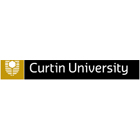Bachelor of Science (Health Sciences)
Bachelor of Science (Health Sciences)
This multidisciplinary course will help you begin your public health career, where you’ll work to achieve better health through the prevention of disease and disability at the community or whole population level, rather than just working with individuals. You’ll learn about how social, economic and environmental factors affect health and…
Categories
COURSE DESCRIPTION
This multidisciplinary course will help you begin your public health career, where you’ll work to achieve better health through the prevention of disease and disability at the community or whole population level, rather than just working with individuals.
You’ll learn about how social, economic and environmental factors affect health and wellbeing, and choose from a broad range of units to begin building your public health career. This includes units focusing on big data and health, epidemiology and biostatistics, healthcare systems in Australia and health promotion planning.
Due to the range of units, this course also acts as a pathway into other health courses with more competitive admission criteria, including pharmacy, speech pathology, physiotherapy or occupational therapy.
Choose your specialisation
There are a number of specialisations available in the third year of this course – units designed to hone your knowledge and skills in a particular area. You can choose to specialise in health data or health sciences, or select an Accelerated Bachelor Master pathway.
Health Data
In this specialisation, you’ll learn how to analyse big data to reveal patterns and trends, and learn about data capture, cyber security, data visualisation and how artificial intelligence and machine learning are being used in health. You’ll also grow your interpretive and decision-making skills and know how to present your results effectively to different audiences.
Health Sciences
This specialisation lets you combine studies in public health disciplines including health promotion, epidemiology and biostatistics, environmental health, occupational health and safety, and global public health administration with a range of optional units. Career outcomes are diverse and you’ll be able to tailor your learning to suit the healthcare career of your choice.
Accelerated Master Degree Pathway
In this pathway you’ll complete four units from a master degree in your third year, and continue on with the master degree in your fourth year. The time taken to complete an Accelerated Bachelor Master Degree is 6 months shorter than completing both degrees individually.
Specialisations available in this pathway are:
Public Health
Health Administration
Sexology
Occupational Health and Safety.
Note: You’ll need a course-weighted average of 60 or higher after completing 300 credit points to qualify for this pathway.
What jobs can the Health Sciences lead to?
Careers
Administrative officer
Community development officer
Data management officer
Policy officer
Project officer
Research officer
Industries
Health research
Local and state government
Non-government organisations
What you’ll learn
Apply discipline knowledge, understand its theoretical underpinnings and ways of thinking; extend the boundaries of knowledge through research
Apply logical and rational processes to analyse the components of an issue; think creatively to generate innovative solutions
Decide what information is needed and where it might be found using appropriate technologies; make valid judgements and synthesise information from a range of sources
Communicate in ways appropriate to the discipline, audience and purpose
Use appropriate technologies recognising their advantages and limitations
Use a range of learning strategies; take responsibility for one’s own learning and development; sustain intellectual curiosity; know how to continue to learn as a graduate
Think globally and consider issues from a variety of perspectives; apply international standards and practices within a discipline or professional area
REQUIREMENTS
Students from different countries should have qualifications equivalent to Australian Year 12 and a scaled mark of at least 50 in English, Literature, or English as an Additional Language or Dialect.
IELTS (International English Language Testing System) – Listening, Reading, Writing, and Speaking – 6.0; Overall band score 6.5; TOEFL Score: 79 (overall); Reading 13; Listening 13; Speaking 18; Writing 21; Pearson Test of English – Listening, Reading, Writing, and Speaking – 50; Overall band score 58; TOEFL (Test of English as a Foreign Language) and PBT (Paper Based Test) – 570 and 4.5 in TWE; C1 Advanced Formerly known as Cambridge English: Advanced (CAE) 176 with 169 in Reading, Writing, Listening and Speaking. C2 Proficiency Formerly known as Cambridge English: Proficiency (CPE) 190 with 176 in Reading, Writing, Listening and Speaking.
EDUCATIONAL INSTITUTION
Curtin University is Western Australia’s largest and most culturally diverse university with Australia’s third largest international student population. Around 60,000 students from more than 130 countries study a Curtin degree, at locations including Perth, Margaret River, Kalgoorlie, Sydney, Malaysia and Singapore. Our cultural diversity adds a rich and valuable dimension to the campus atmosphere, preparing all graduates to live and work effectively in an increasingly global environment. We offer a range of industry-aligned undergraduate and postgraduate courses in business, humanities, health, engineering and related sciences. We also have a long-standing focus on Aboriginal and Torres Strait Islander education and culture, supported by our Centre for Aboriginal Studies.Curtin is widely recognised for its practical research that is focused on solving timely, real-world problems. In recent years our research activity has grown significantly, driving our rapid rise up the international university rankings.As a university that never settles, we will continue to develop existing partnerships and establish new ones in areas relevant to our research and teaching.




